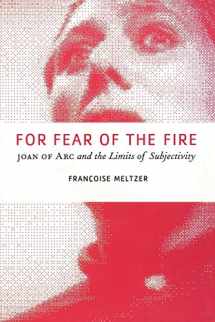
For Fear of the Fire: Joan of Arc and the Limits of Subjectivity
Book details
Summary
Description
Why are contemporary secular theorists so frequently drawn to saints, martyrs, and questions of religion? Why has Joan of Arc fascinated some of the most important thinkers of the twentieth century? In a book that faces crucial issues in both critical and feminist inquiry, Françoise Meltzer uses the story of Joan as a guide for reading the postmodern nostalgia for a body that is intact and transparent. She argues that critics who place excessive emphasis on opposition and difference remain blind to their nostalgia for the pre-Cartesian idea that the body and mind are the same.
Engaging a number of theorists, and alternating between Joan's historical and cultural context, Meltzer also explores the ways in which postmodern thinkers question subjectivity. She argues that the way masculine subjects imagine Joan betrays their fear of death and necessitates the role of women as cultural others: enigmatic, mysterious, dark, and impossible. As such, Joan serves as a useful model of the limits and risks of subjectivity. For Meltzer, she is both the first modern and the last medieval figure. From the ecclesial jury that burned her, to the theorists of today who deny their attraction to the supernatural, the philosophical assumptions that inform Joan's story, as Meltzer ultimately shows, have changed very little.


We would LOVE it if you could help us and other readers by reviewing the book
Book review



